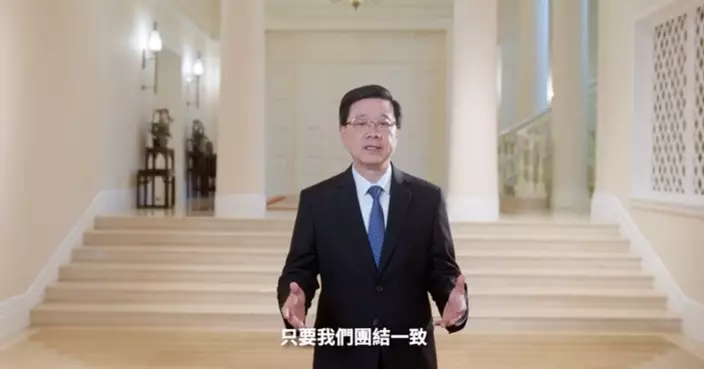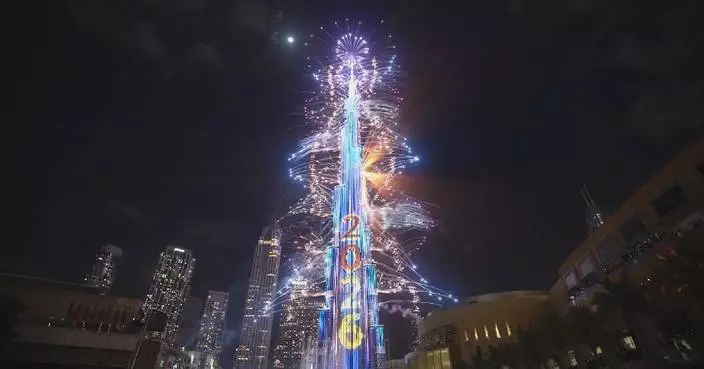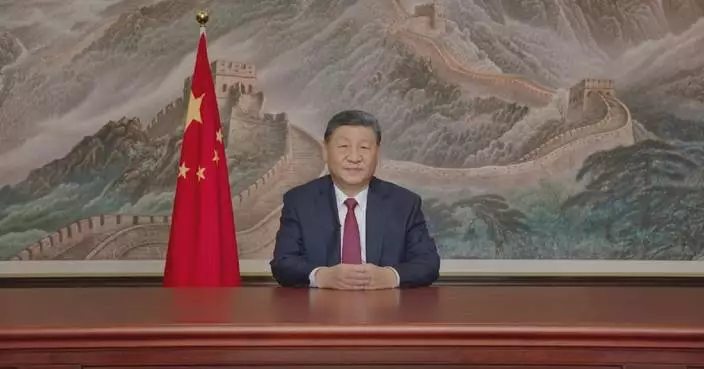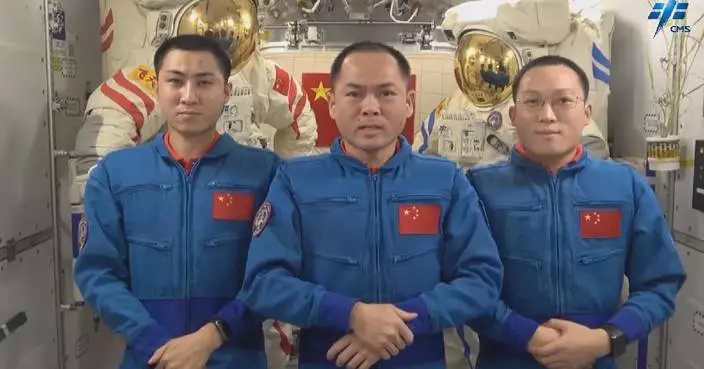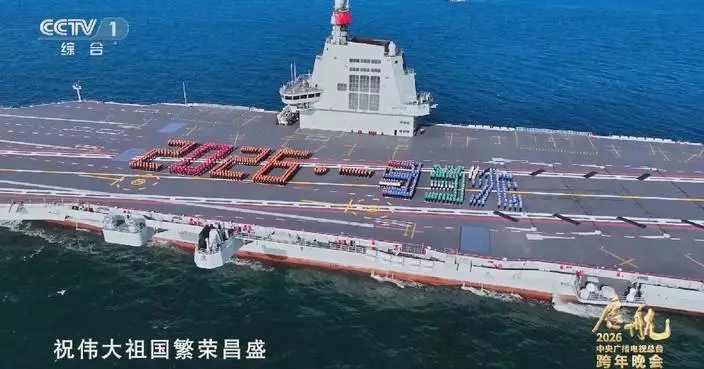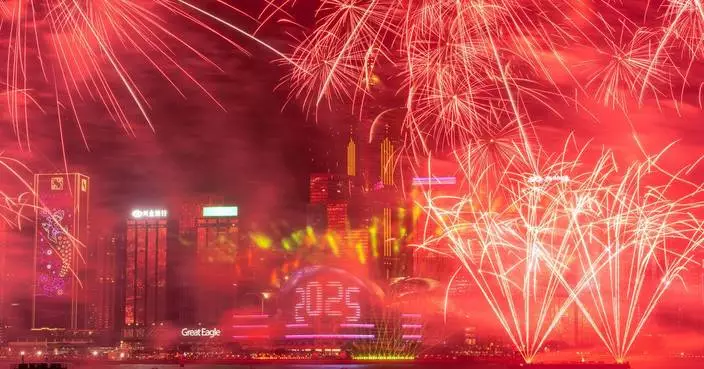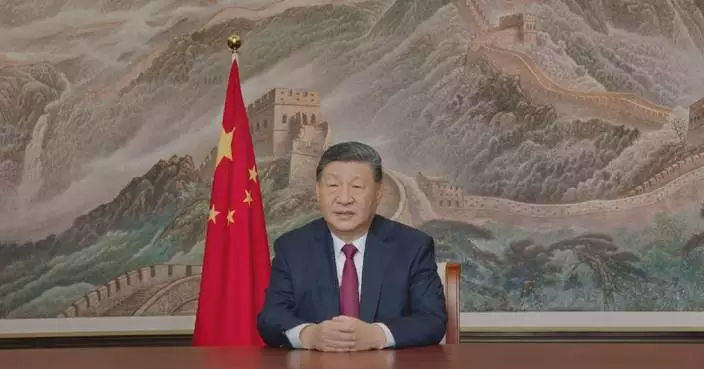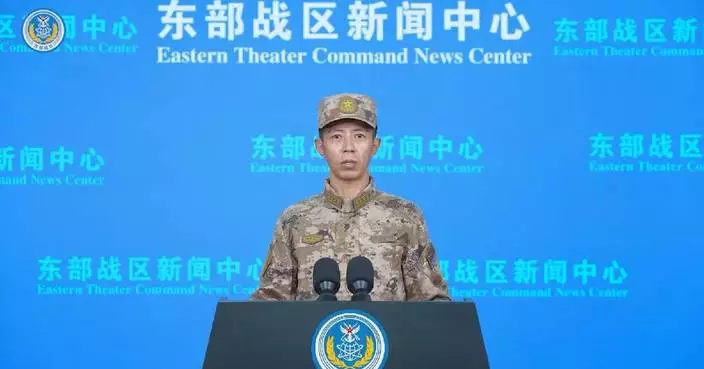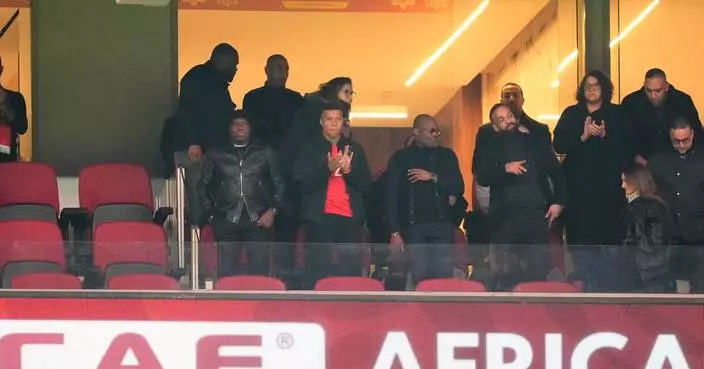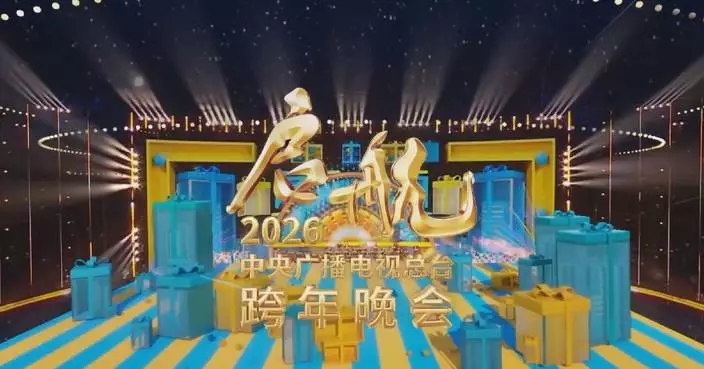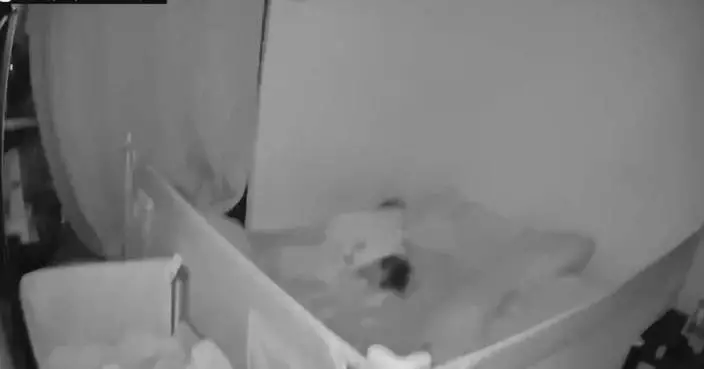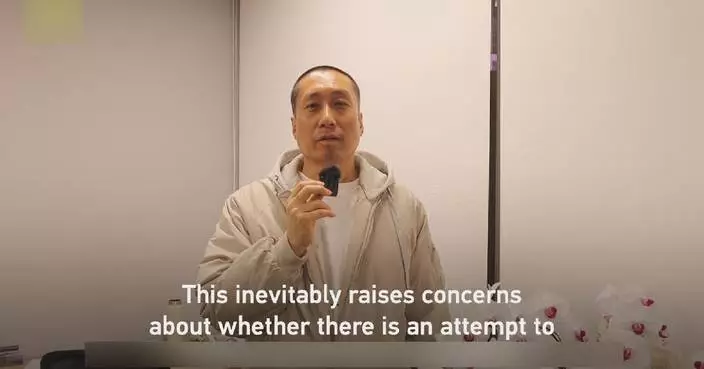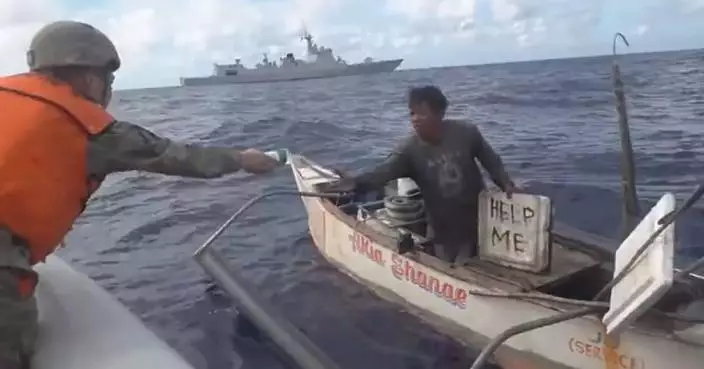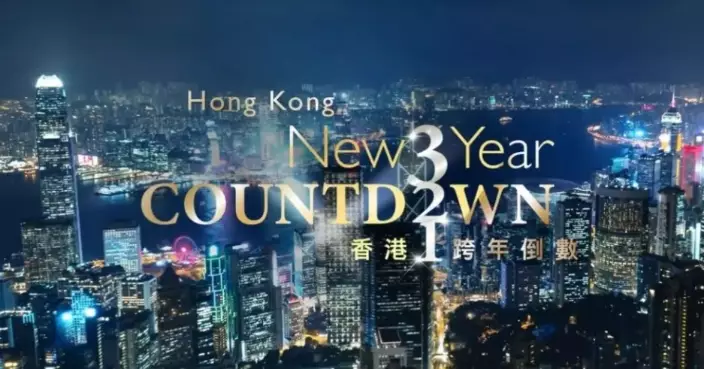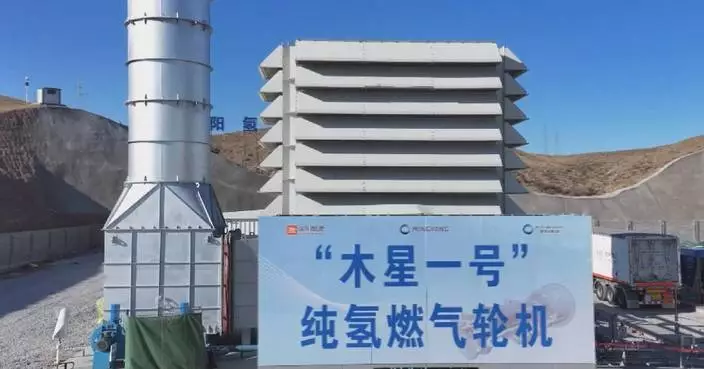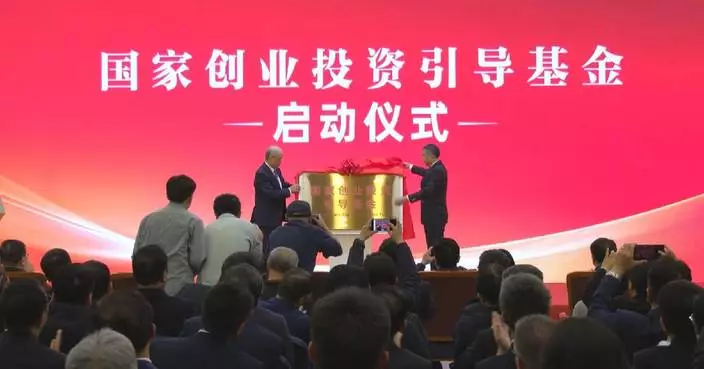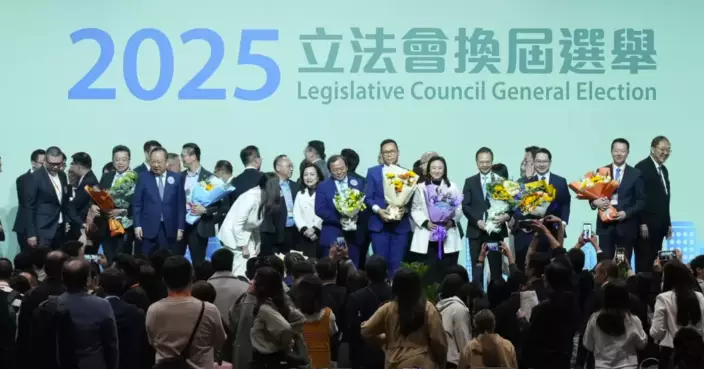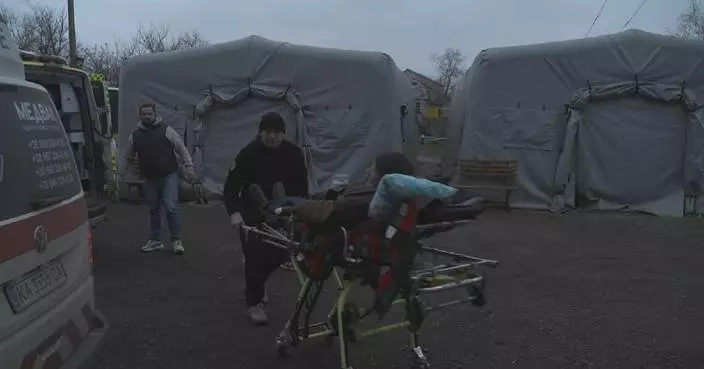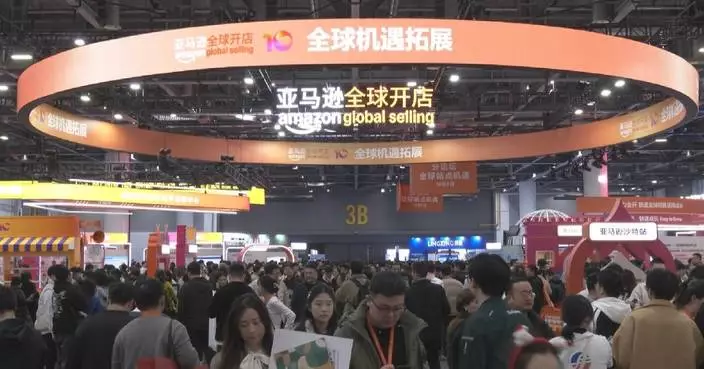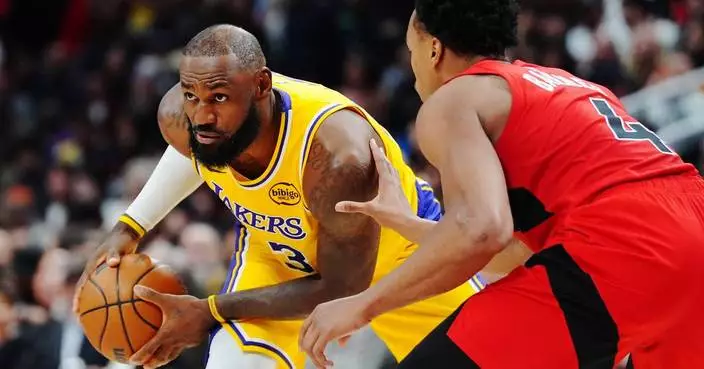Feature · News

Nigerian authorities say British boxer Anthony Joshua released from hospital after road crash

French government defends granting citizenship to George and Amal Clooney
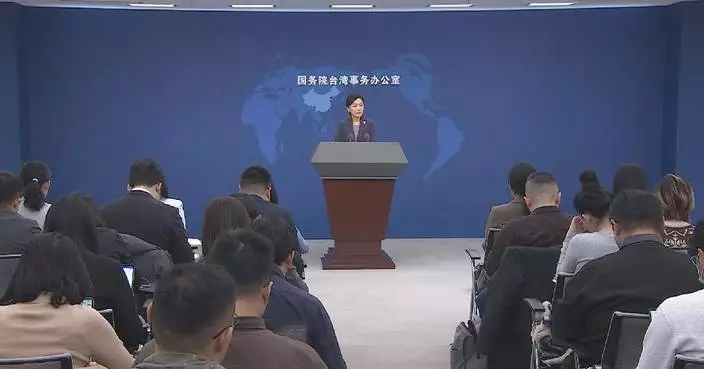
Lai Ching-te's secessionist attempt of leaning on external powers doomed to fail: spokeswoman
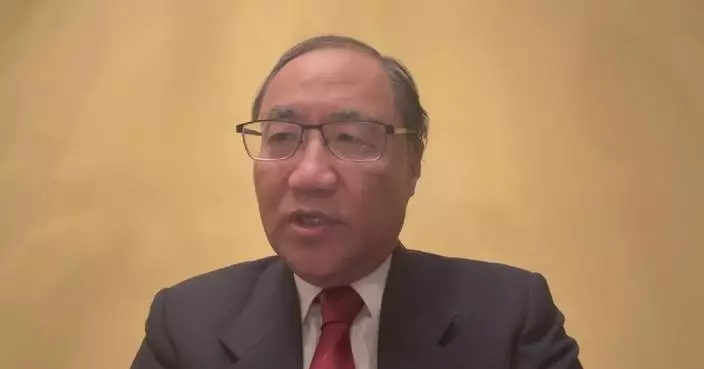
Justice Mission 2025 aims at defending justice: expert
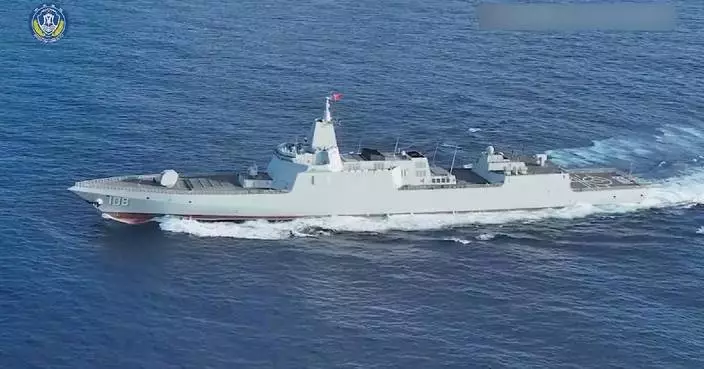
Chinese military conducts combat readiness patrols over Huangyan Dao
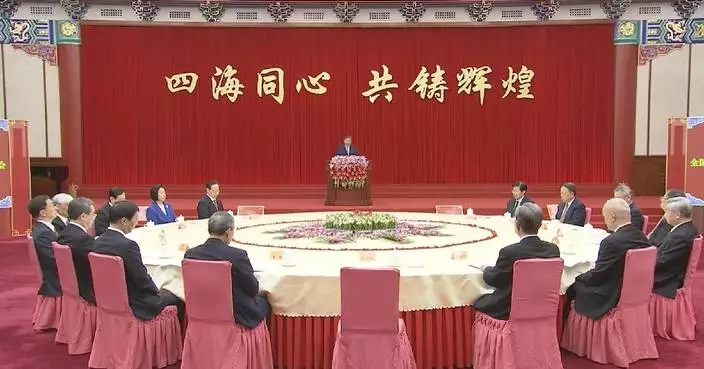
Xi emphasizes strong start for 15th Five-Year Plan period
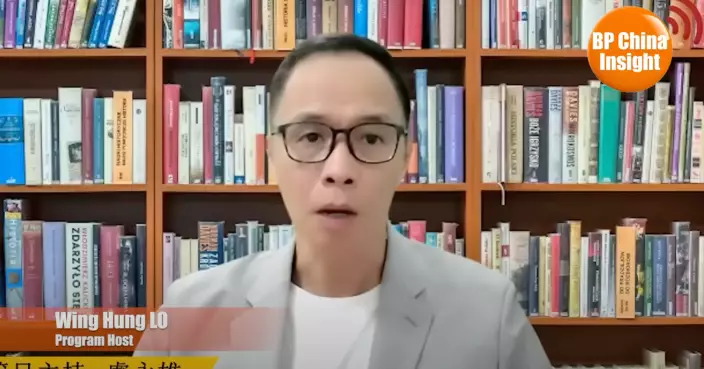
BP China Insight: U.S.'s collective silence on China's military exercises is a state of semi-abandonment
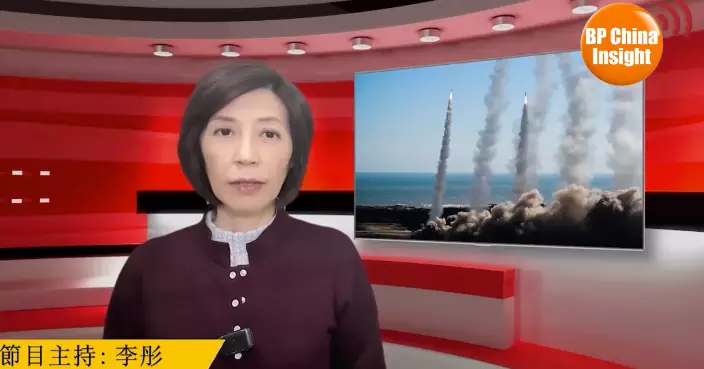
BP China Insight: China calls out “hypocritical” nations over drill concerns
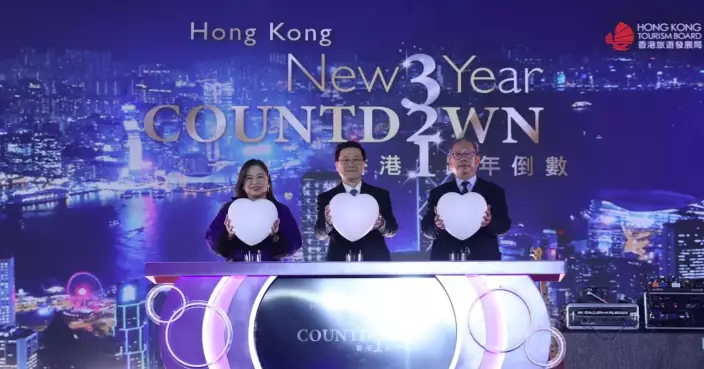
Mr John Lee Attends the New Year Countdown and Shares Joy with the Citizens
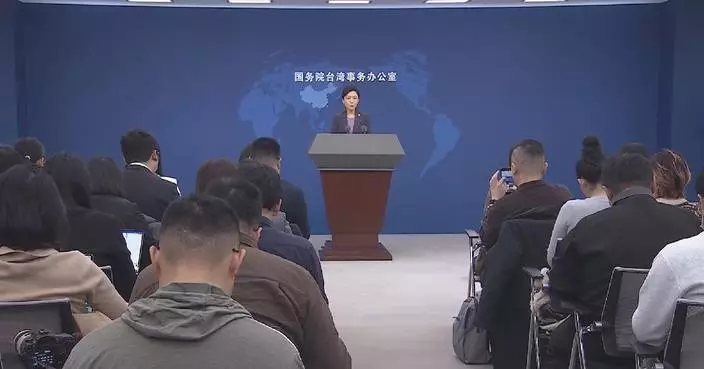
Poll findings in Taiwan reflect people's strong dissatisfaction with DPP authorities: spokesperson
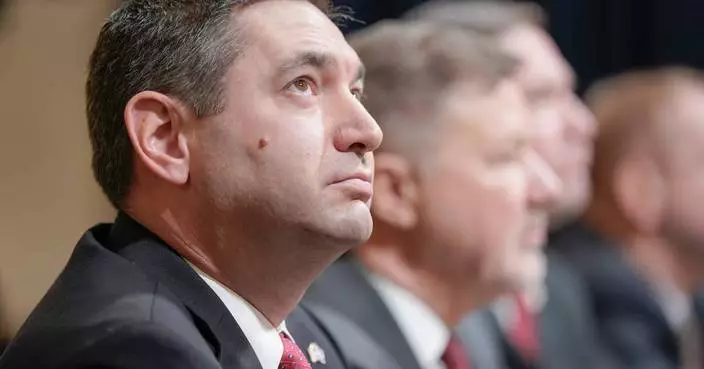
Montana’s Supreme Court dismisses misconduct case against the state’s attorney general
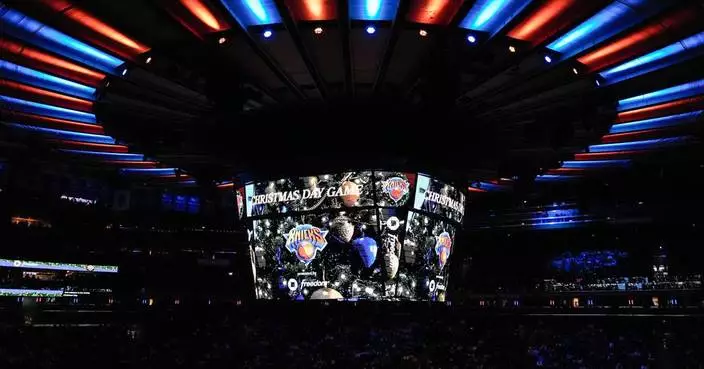
NBA Christmas viewership hits 15-year high with 47M viewers. And social media numbers set records
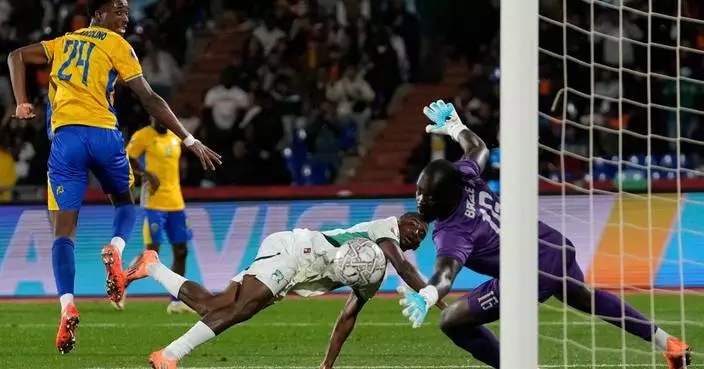
Comeback wins for Ivory Coast, Cameroon at Africa Cup. Sudan advances despite defeat and war at home
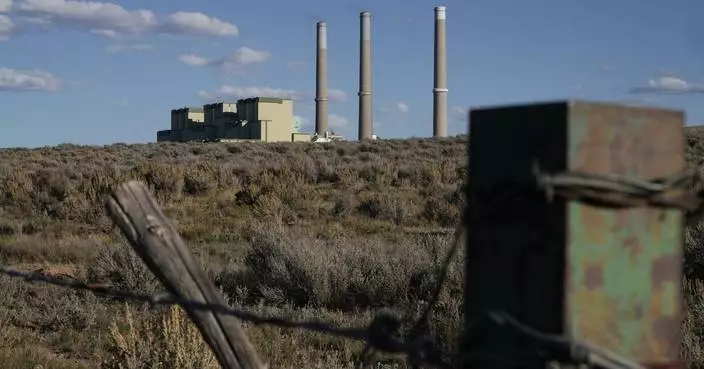
Trump administration orders a Colorado coal-fired power generator to stay open
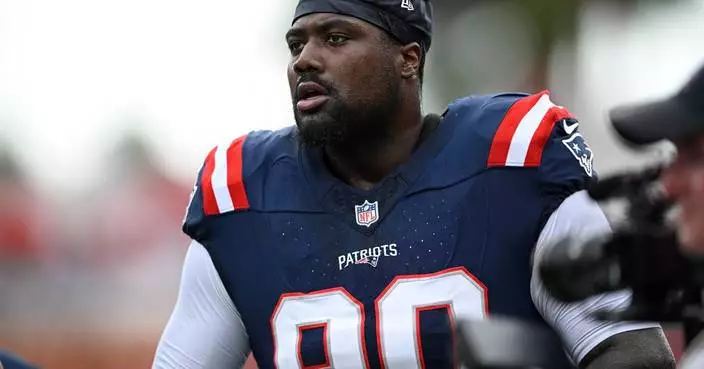
Patriots defensive lineman Christian Barmore accused of throwing girlfriend to the ground

Disney World worker is injured trying to stop runaway boulder at Indiana Jones show

BP China Insight: U.S.'s collective silence on China's military exercises is a state of semi-abandonment

BP China Insight: China calls out “hypocritical” nations over drill concerns

Mr John Lee Attends the New Year Countdown and Shares Joy with the Citizens
Poll findings in Taiwan reflect people's strong dissatisfaction with DPP authorities: spokesperson

Nigerian authorities say British boxer Anthony Joshua released from hospital after road crash

French government defends granting citizenship to George and Amal Clooney

Lai Ching-te's secessionist attempt of leaning on external powers doomed to fail: spokeswoman
Justice Mission 2025 aims at defending justice: expert
Chinese military conducts combat readiness patrols over Huangyan Dao
Xi emphasizes strong start for 15th Five-Year Plan period

Montana’s Supreme Court dismisses misconduct case against the state’s attorney general

NBA Christmas viewership hits 15-year high with 47M viewers. And social media numbers set records

Comeback wins for Ivory Coast, Cameroon at Africa Cup. Sudan advances despite defeat and war at home

Trump administration orders a Colorado coal-fired power generator to stay open

Patriots defensive lineman Christian Barmore accused of throwing girlfriend to the ground

Disney World worker is injured trying to stop runaway boulder at Indiana Jones show
Feature·Bloggers

【What Say You?】Black Riots “comrades” Thought Ukraine Was Another “Resistance”—Then the Contract Hit

【Bastille Commentary】Green Nails? The Lie No Lawyer Would Touch
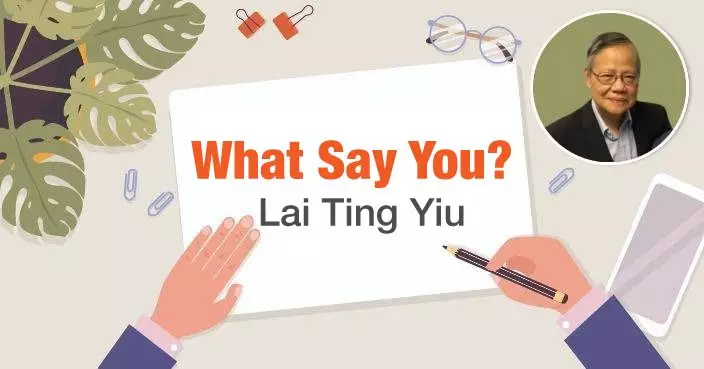
【What Say You?】How Jimmy Lai's Right-Hand Man Ran a Corporate Shakedown Operation

【Deep Blue】Trump's "Empire Strikes Back" Gambit: A Long Shot at Best

【What Say You?】Unfinished business With the “anti-Hong Kong triangle”?

【Bastille Commentary】UK's Hypocrisy on Display: Seizing Private Assets While Preaching Freedom

Dozens presumed dead and about 100 injured in fire at Swiss Alps bar during New Year's celebration
- Bulgaria is joining the euro. Here's what it means for consumers and businesses
- Tineco Turns Floor Care into an Art of Living at CES 2026
- PHOTO COLLECTION: A look at AP's top photos in December
- Zohran Mamdani sworn in as New York City mayor at historic subway station
- Volunteer in Iran's Revolutionary Guard reportedly killed during widening protests
- Viral '6-7' tops 2025 list of overused words and phrases
- Capitol riot 'does not happen' without Trump, Jack Smith told Congress
- Federal ruling blocks Hawaii's climate change tourist tax on cruise ships
- US military strikes 5 more alleged drug boats, killing 8 and possibly leaving survivors

Israel bans operations of 37 int'l aid groups in Gaza Strip, West Bank
- China’s 2025 film successes signal growing global presence, influence: experts
- Xi's New Year address inspires people across nation to strive for progress in 2026
- China values, welcomes ROK president's visit: FM
- U.S. consumers feel pinch of high tariffs
- Twin giant pandas seen frolicking in snowy wonderland in northwest China
- Giant panda cubs make New Year debut in Chengdu
- Festive celebrations held across China to welcome new year
- Report reveals widespread destruction, deteriorated humanitarian situation in Gaza in 2025
- Türkiye grants visa-free entry to Chinese tourists
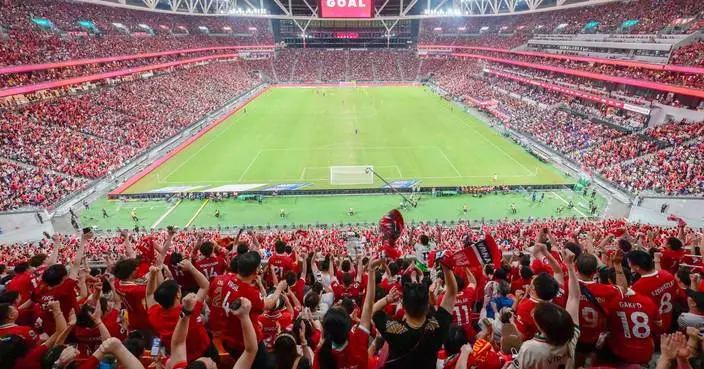
Happy New Year for Hong Kong’s Tourism and Mega Events Economy
- Haier Teams Up with Paris Saint-Germain to Create Champion Experiences for Global Users
- GAC's Global Ecosystem Takes Shape as Overseas Sales Nearly Triple in Two Years
- XJTLU marks 20 years with global 'Light Up the World' celebration
- Visit Malaysia 2026 Countdown Festival: A New Year’s Eve Celebration
- New Year's Day: What's open? Retailers. What's closed? Government and banks
- Wall Street falls in light trading on the final day of 2025, another banner year for markets
- Some Warren Buffett wisdom on his last day leading Berkshire Hathaway
- COLE HAAN UNVEILS GRANDPRØ TENNIS 2.0: A NEW ERA OF LIGHTNESS INNOVATION
- Ariyana Convention Centre Danang Reaffirms Its Global Prestige By Securing Both The "Viet Nam Best Mice Venue 2025" And "Best Convention Centre In Vietnam" Accolades

If someone's always late, is it time blindness, or are they just being rude?
- Flu is rising rapidly, driven by a new variant. Here's what to know
- Meta buys startup Manus in latest move to advance its artificial intelligence efforts
- The year's first meteor shower and supermoon clash in January skies
- What's inside Mexico's Popocatépetl volcano? Scientists obtain first 3D images
- 2025 was one of three hottest years on record, scientists say
- Trying to improve your health and wellness in 2026? Keep it simple
- The moon and sun figure big in the new year's lineup of cosmic wonders
- New York subway ends its MetroCard era and switches fully to tap-and-go fares
- Foods with healthy-sounding buzzwords could be hiding added sugar in plain sight
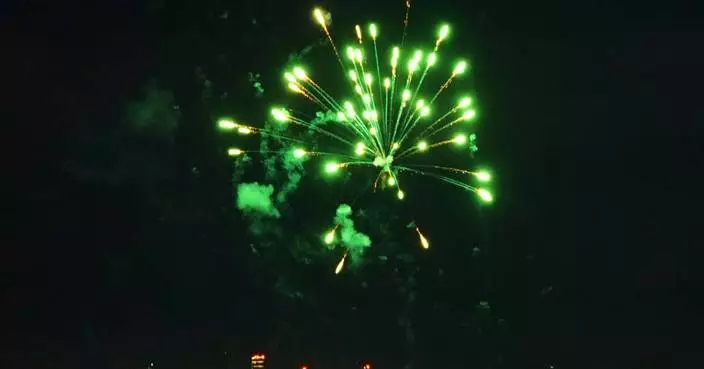
Greece and Cyprus are welcoming 2026 without the bang
- Cities around the world welcome 2026 with thunderous fireworks and heightened security
- A Kenyan barber who wields a sharpened shovel thrives on Africa's social media craze
- Photos show the ancient art of Peking opera works hard to keep flourishing in the digital age
- Betty Boop and 'Blondie' enter the public domain in 2026, accompanied by a trio of detectives
- Nasty weather on tap for New Year fetes at Rose Parade in California and revelers in New York City
- English actors Tom Hiddleston and Zawe Ashton welcome their second child
- Release of the Latest Ecological Documentary on Huangyan Dao: An Unfading Commitment: Why Huangyan Dao Needs Protection
- In a breakneck digital era, the ancient art of Peking opera works hard to keep flourishing
- LOCALIZE IT: Marching bands, equestrian units from several states featured in Rose Parade on Jan. 1

Set to go: Two weeks of tennis mania Down Under ahead of the Australian Open
- Pastrnak leads Bruins past Oilers 6-2 to stop 6-game slide
- Another bye bites the dust as defending champ Ohio State falls to Miami in CFP quarterfinals
- Miami beats defending national champ Ohio State 24-14 in the CFP quarterfinal at Cotton Bowl
- Sweden beats US 6-3 in world junior hockey group finale. Canada tops Finland 7-4
- Flames beat Flyers 5-1 for 4th straight home victory
- MacKinnon scores 400th goal and Nichushkin nets hat trick as Avalanche rout Blues 6-1
- Spurs survive injury scare to Wembanyama, rally to beat Knicks 134-132 in NBA Cup final rematch
- Spurs' Wembanyama doesn't expect to miss time after hyperextending knee in win over Knicks
- After waiting 36 years, French soccer fans finally have a capital city derby again as PSG faces PFC
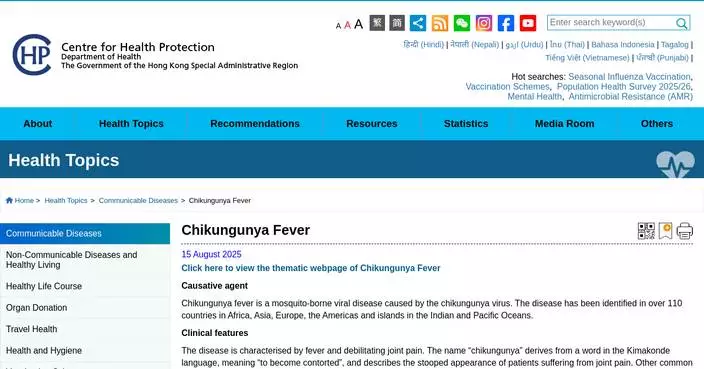
No New Chikungunya Fever Cases Reported in Hong Kong, Total Stands at 82 for the Year
- Home Affairs Opens 18 Cold Shelters Amid Severe Weather for Those in Need
- CHP Urges Vulnerable Groups to Take Precautions Amid Cold Weather Risks
- Government Announces New Appointments to ICAC Advisory Committees for Two-Year Terms Starting January 1, 2026.
- Chief Executive Confirms Valid Oaths for All 90 Members of Hong Kong's Eighth Term Legislative Council
- Secretary expresses condolences for FEHD worker killed in accident on Canton Road
- Government Appoints Appeal Panel for Critical Infrastructure Security Oversight
- Hong Kong rings in 2026 without fireworks after deadliest blaze in decades
- Tragic Loss: Street Cleaner Li Haiying Dies After Being Struck by Vehicle in Yau Ma Tei
- Woman killed in Yau Ma Tei traffic accident; driver arrested for dangerous driving
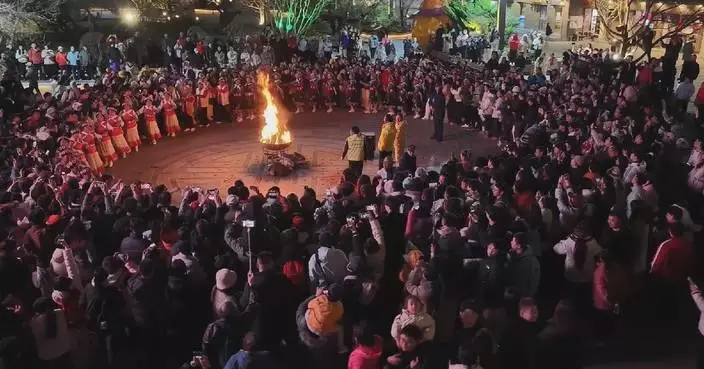
Xi's New Year message inspires national optimism
- Countries around world welcome 2026 with fireworks, shows
- Proud citizens greet new year gather at China's national flag-raising ceremony
- China's railway trips expected to hit 18.25 million on New Year's Day
- Hong Kong, Macao hold New Year flag-raising ceremonies
- China's splendid landscapes bathed in New Year's sunrise glow
- China's 2025 box office revenue exceeds 51.8 bln yuan
- Japanese official criticizes Takaichi's erroneous remarks
- Chinese astronauts, expedition team, sailors send New Year wishes through CMG gala
- CMG presents culture-rich New Year Gala to ring in 2026
Category · News

Dozens presumed dead and about 100 injured in fire at Swiss Alps bar during New Year's celebration
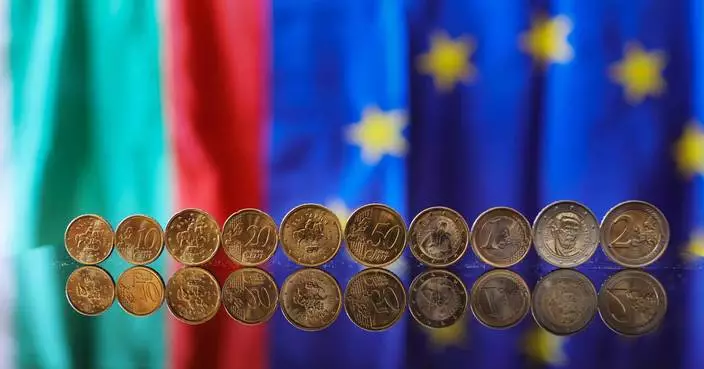
Bulgaria is joining the euro. Here's what it means for consumers and businesses

No New Chikungunya Fever Cases Reported in Hong Kong, Total Stands at 82 for the Year

Home Affairs Opens 18 Cold Shelters Amid Severe Weather for Those in Need
Israel bans operations of 37 int'l aid groups in Gaza Strip, West Bank

China’s 2025 film successes signal growing global presence, influence: experts
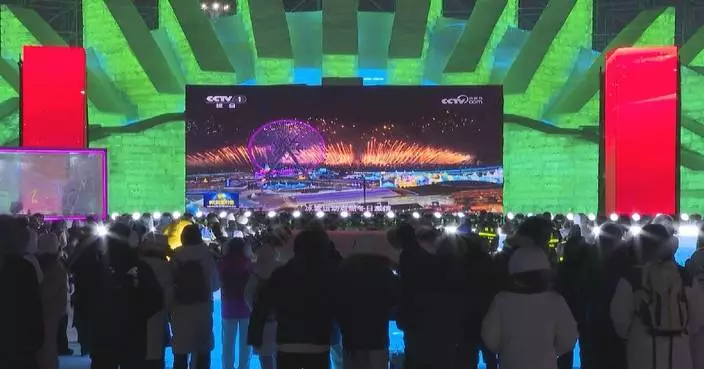
Xi's New Year address inspires people across nation to strive for progress in 2026
China values, welcomes ROK president's visit: FM

Tineco Turns Floor Care into an Art of Living at CES 2026
U.S. consumers feel pinch of high tariffs
Twin giant pandas seen frolicking in snowy wonderland in northwest China
Giant panda cubs make New Year debut in Chengdu

Greece and Cyprus are welcoming 2026 without the bang
Festive celebrations held across China to welcome new year

CHP Urges Vulnerable Groups to Take Precautions Amid Cold Weather Risks

Set to go: Two weeks of tennis mania Down Under ahead of the Australian Open
Report reveals widespread destruction, deteriorated humanitarian situation in Gaza in 2025
Türkiye grants visa-free entry to Chinese tourists
Xi's New Year message inspires national optimism
Countries around world welcome 2026 with fireworks, shows
Proud citizens greet new year gather at China's national flag-raising ceremony

Happy New Year for Hong Kong’s Tourism and Mega Events Economy

Government Announces New Appointments to ICAC Advisory Committees for Two-Year Terms Starting January 1, 2026.

PHOTO COLLECTION: A look at AP's top photos in December
China's railway trips expected to hit 18.25 million on New Year's Day
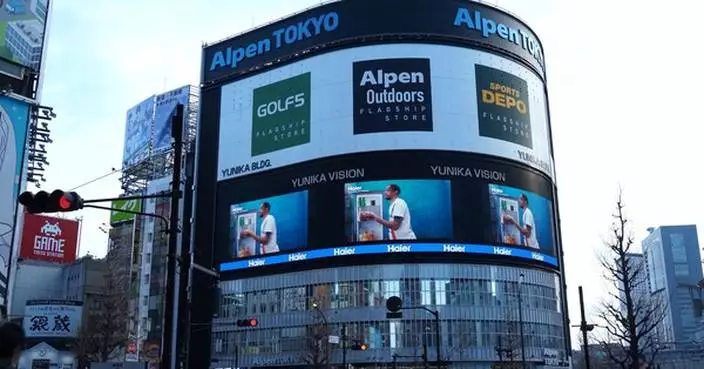
Haier Teams Up with Paris Saint-Germain to Create Champion Experiences for Global Users
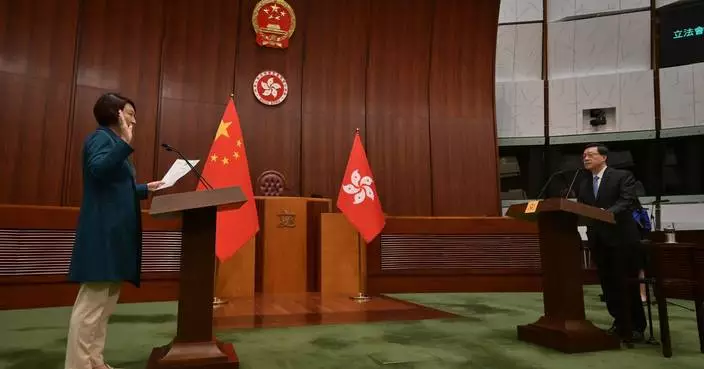
Chief Executive Confirms Valid Oaths for All 90 Members of Hong Kong's Eighth Term Legislative Council
Hong Kong, Macao hold New Year flag-raising ceremonies

Zohran Mamdani sworn in as New York City mayor at historic subway station

Pastrnak leads Bruins past Oilers 6-2 to stop 6-game slide
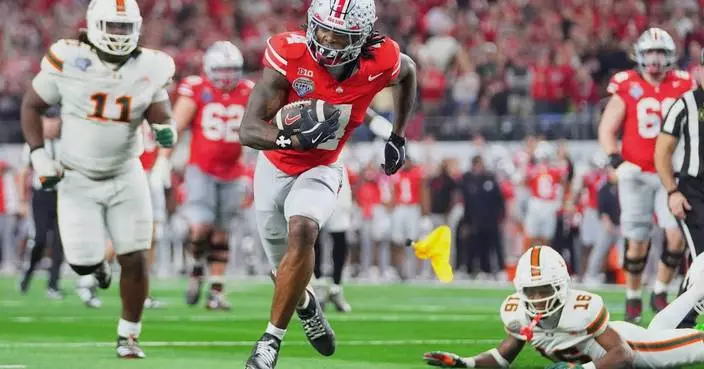
Another bye bites the dust as defending champ Ohio State falls to Miami in CFP quarterfinals
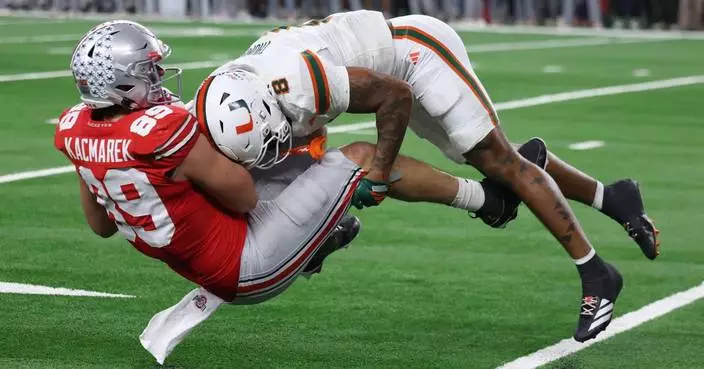
Miami beats defending national champ Ohio State 24-14 in the CFP quarterfinal at Cotton Bowl
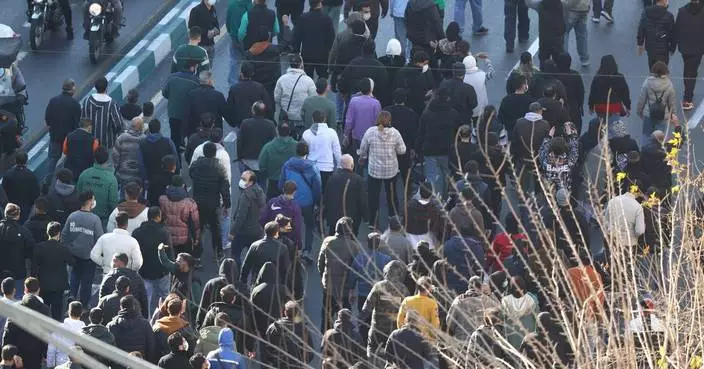
Volunteer in Iran's Revolutionary Guard reportedly killed during widening protests
Global observers hail Xi's New Year message
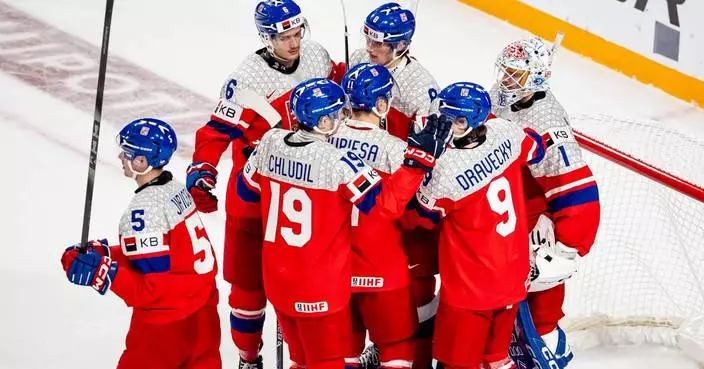
Sweden beats US 6-3 in world junior hockey group finale. Canada tops Finland 7-4
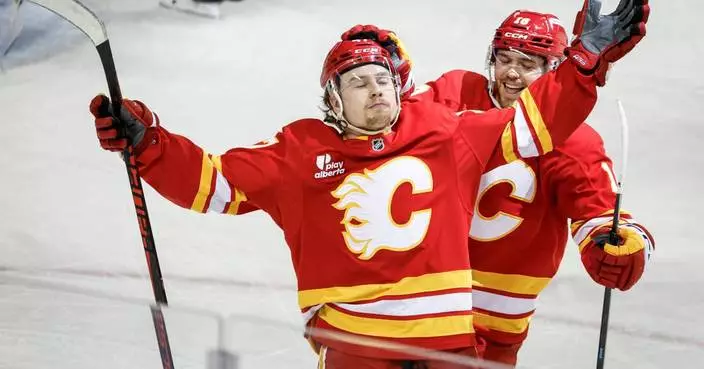
Flames beat Flyers 5-1 for 4th straight home victory
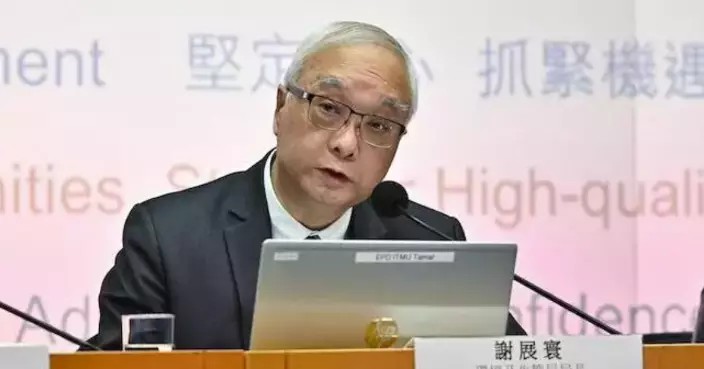
Secretary expresses condolences for FEHD worker killed in accident on Canton Road

MacKinnon scores 400th goal and Nichushkin nets hat trick as Avalanche rout Blues 6-1
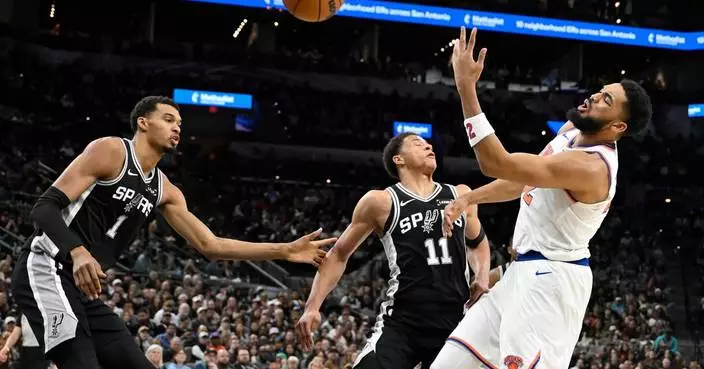
Spurs survive injury scare to Wembanyama, rally to beat Knicks 134-132 in NBA Cup final rematch
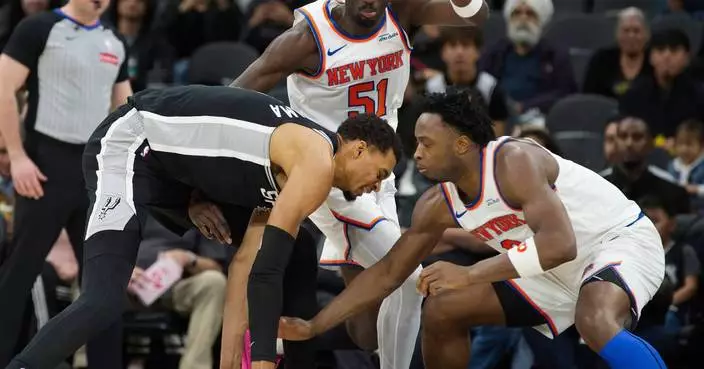
Spurs' Wembanyama doesn't expect to miss time after hyperextending knee in win over Knicks
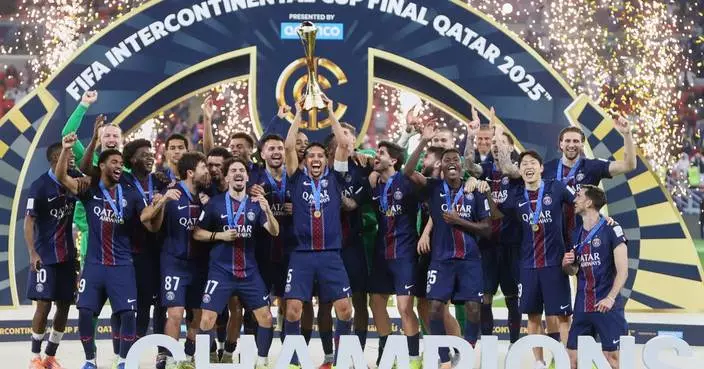
After waiting 36 years, French soccer fans finally have a capital city derby again as PSG faces PFC
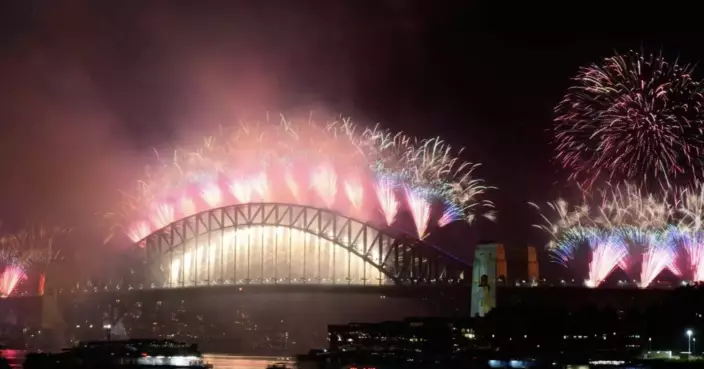
Cities around the world welcome 2026 with thunderous fireworks and heightened security
China's splendid landscapes bathed in New Year's sunrise glow
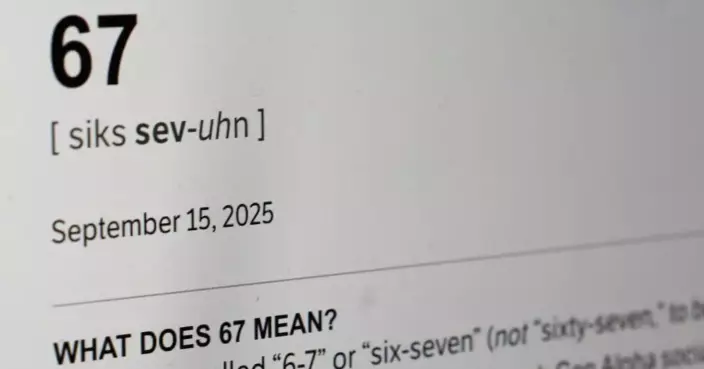
Viral '6-7' tops 2025 list of overused words and phrases
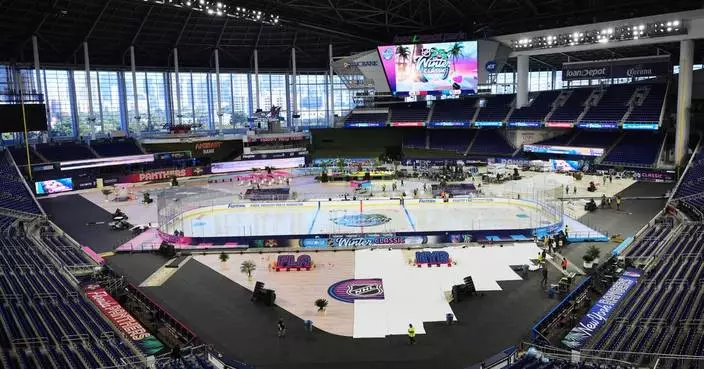
Outdoor hockey. In Miami. It's finally going to happen on Friday, when Panthers play Rangers

Capitol riot 'does not happen' without Trump, Jack Smith told Congress
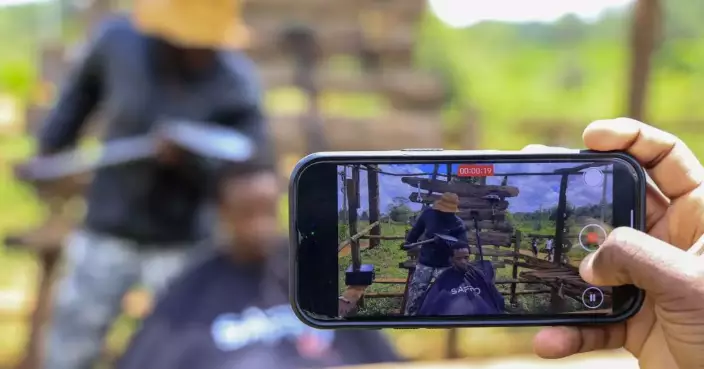
A Kenyan barber who wields a sharpened shovel thrives on Africa's social media craze
China's 2025 box office revenue exceeds 51.8 bln yuan

GAC's Global Ecosystem Takes Shape as Overseas Sales Nearly Triple in Two Years
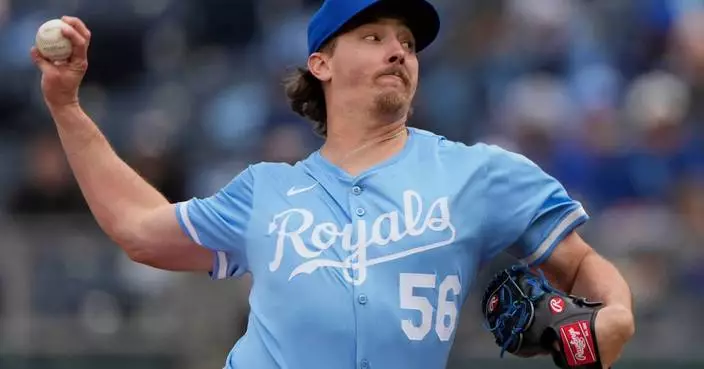
Reliever Hunter Harvey and the Chicago Cubs finalize 1-year contract
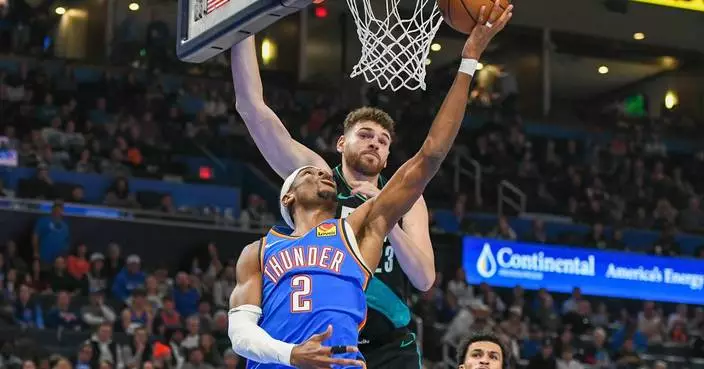
Gilgeous-Alexander scores 30 points as Thunder top Trail Blazers 124-95

Thompson scores twice as Sabres beat Stars 4-1 for 10th straight victory
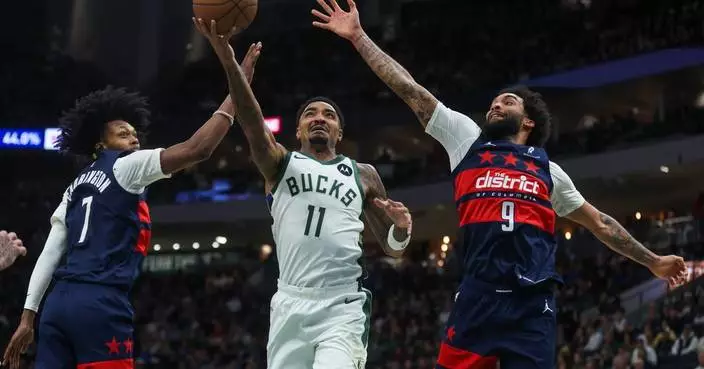
McCollum's jumper in final seconds leads Wizards to a 114-113 win over the Bucks
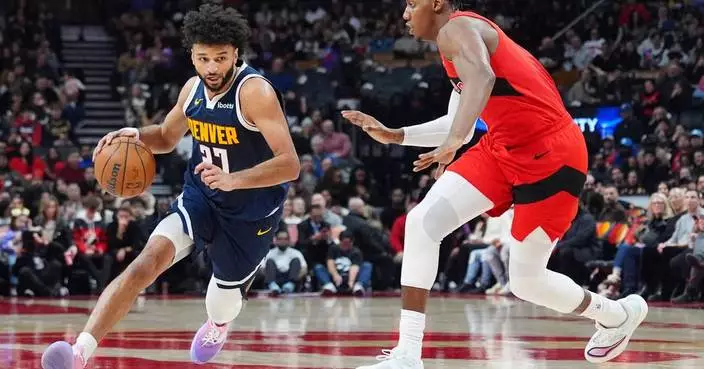
Watson scores 24 points as Nuggets hold off Raptors to win 106-103 without the injured Jokic
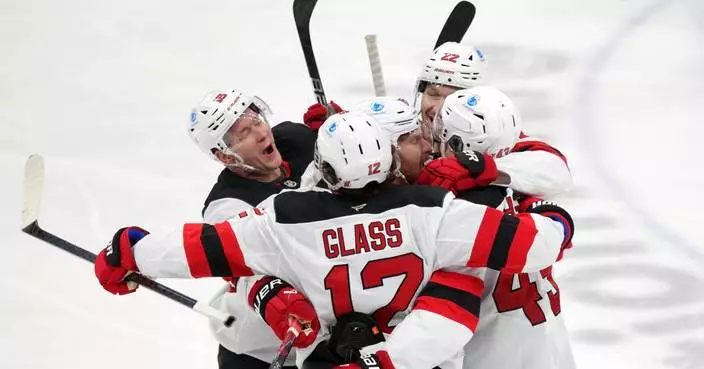
Luke Hughes breaks 3rd-period tie in the Devils' 3-2 victory over the Blue Jackets
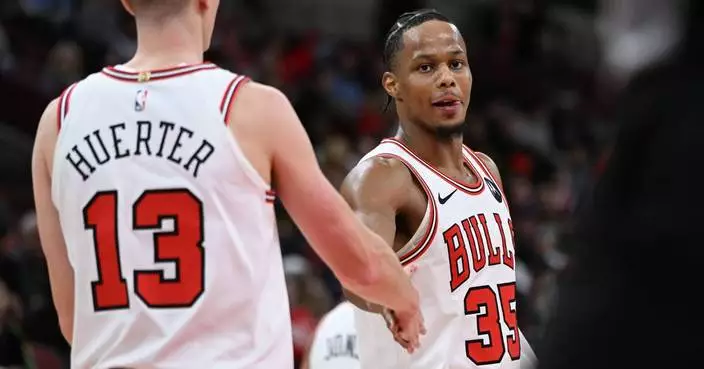
Okoro's season-high 24 points lead short-handed Bulls past Pelicans 134-118
UAE, Australia ring in New Year with spectacular fireworks

Federal ruling blocks Hawaii's climate change tourist tax on cruise ships

US military strikes 5 more alleged drug boats, killing 8 and possibly leaving survivors
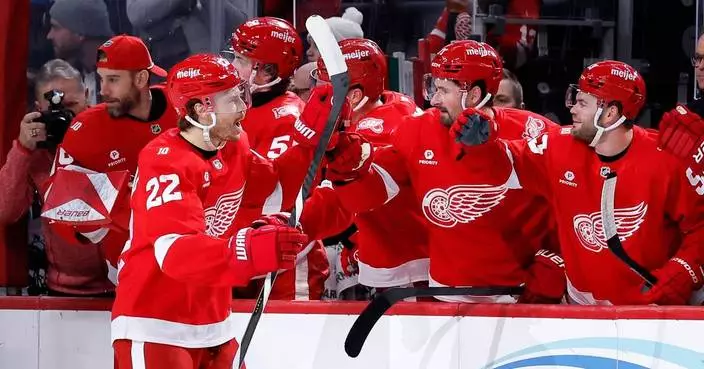
John Gibson makes 24 saves as surging Red Wings beat slumping Jets, 2-1
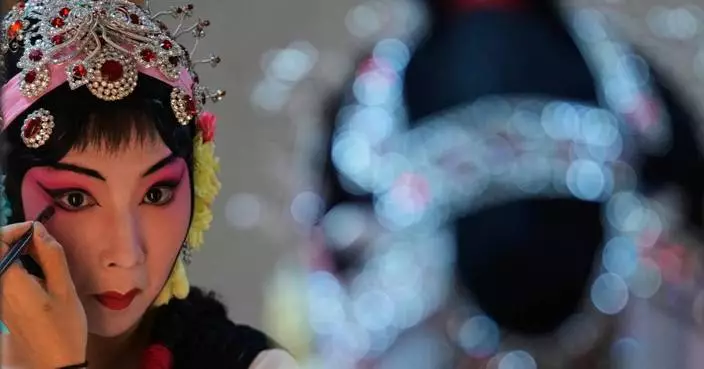
Photos show the ancient art of Peking opera works hard to keep flourishing in the digital age
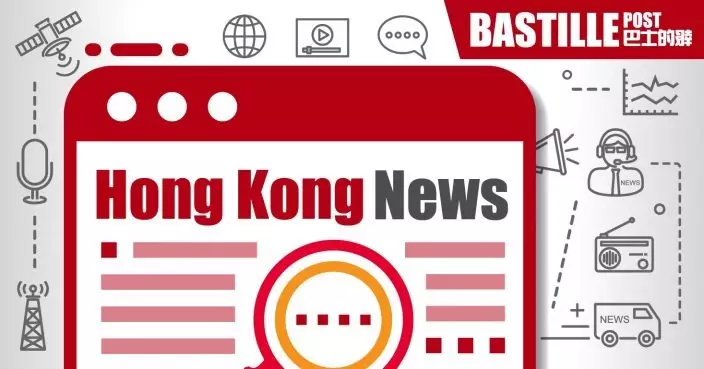
Government Appoints Appeal Panel for Critical Infrastructure Security Oversight
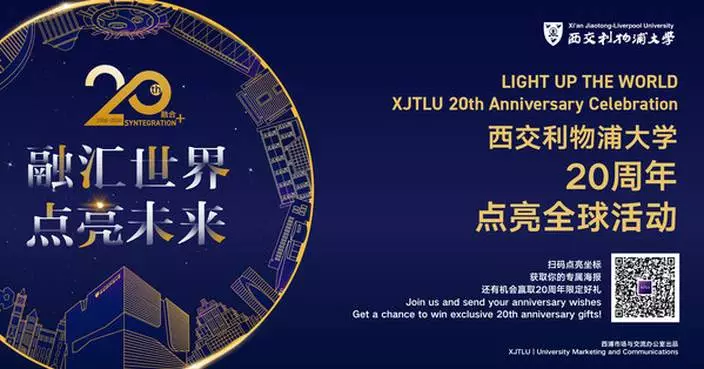
XJTLU marks 20 years with global 'Light Up the World' celebration
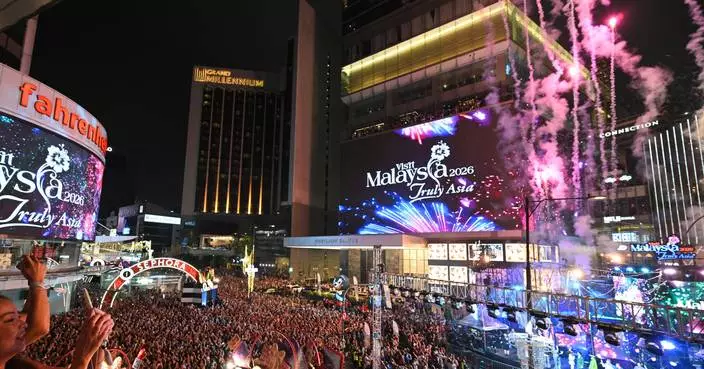
Visit Malaysia 2026 Countdown Festival: A New Year’s Eve Celebration
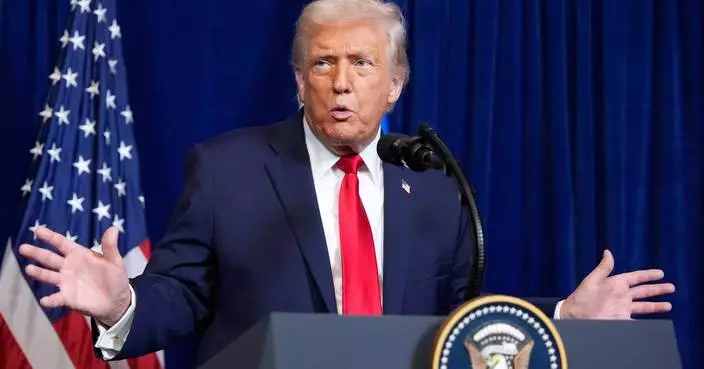
Trump says he's dropping push for National Guard in Chicago, LA and Portland, Oregon, for now

New Year's Day: What's open? Retailers. What's closed? Government and banks

Celebrini joins McDavid, MacKinnon, Crosby on Team Canada's Olympic hockey roster

No. 4 UConn beats Xavier 90-67 behind Mullins and Karaban
New Year flag-raising ceremony held at Tian'anmen Square in Beijing

Joe Burrow hoping to see change propel the Bengals back into the postseason in 2026
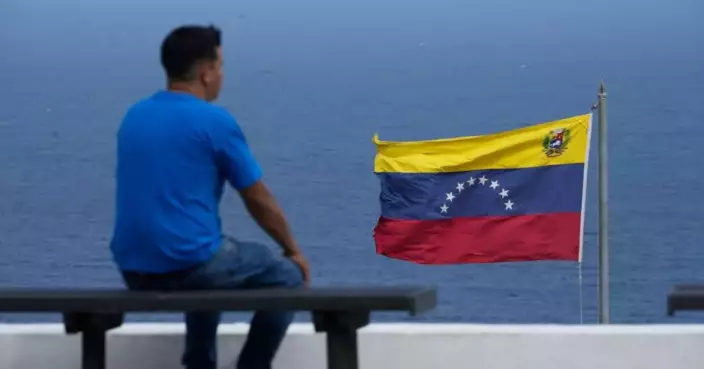
A timeline of the US military's buildup near Venezuela and attacks on alleged drug-smuggling boats
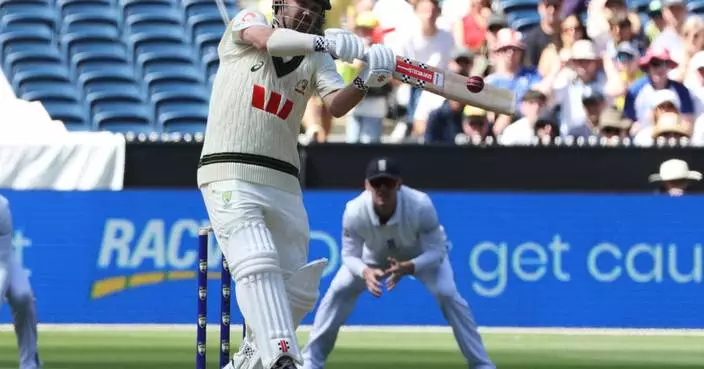
Australia names a spin-heavy squad of 15 players for the T20 World Cup in Sri Lanka and India
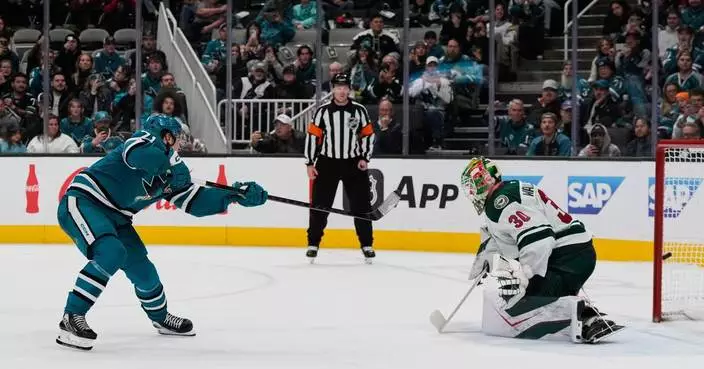
Celebrini celebrates Team Canada selection by leading Sharks past Wild 4-3 in shootout
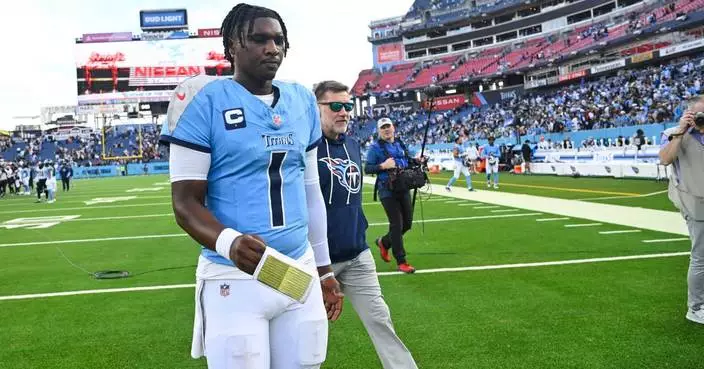
Cam Ward provides rare QB stability for the Titans by starting every game as a rookie

Darren Raddysh scores in OT, Lightning beat Ducks 4-3 in coach Jon Cooper's 1,000th game
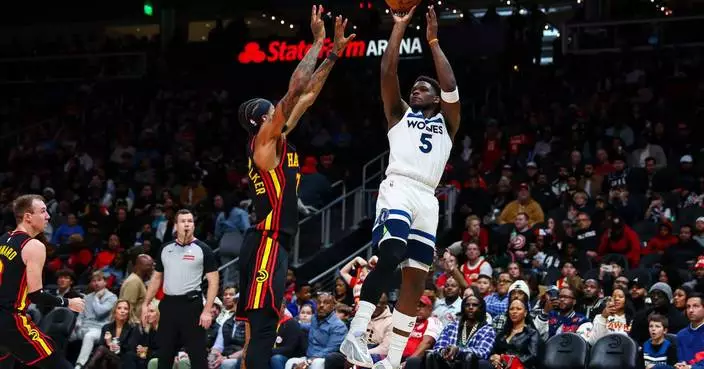
'Ant-Man' Edwards leaves bench late in loss for 2nd early exit from a Timberwolves game in 1 week

What to know about Trump administration freezing federal child care funds
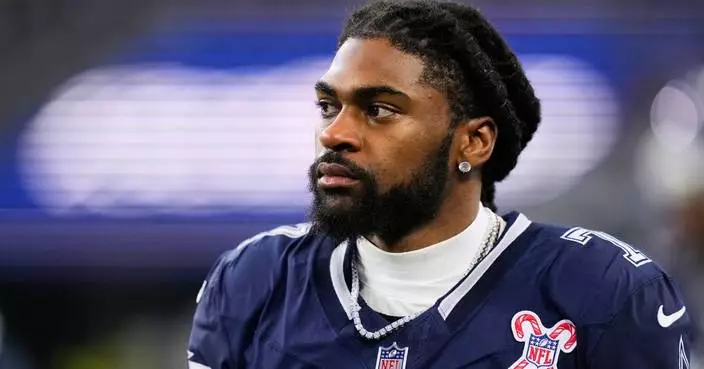
Packers claim Trevon Diggs one day after Cowboys waived the veteran cornerback
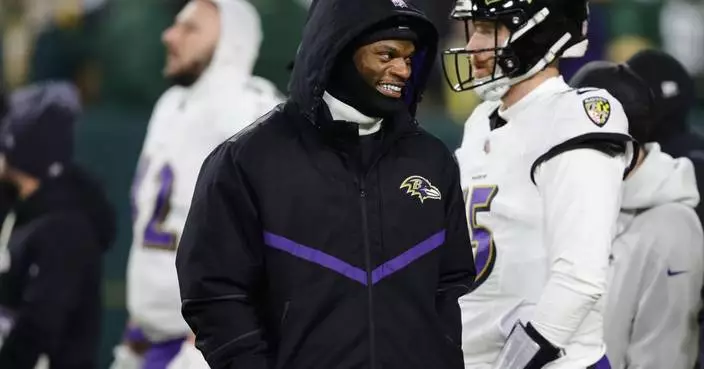
Lamar Jackson at practice for the Ravens as Baltimore prepares for Pittsburgh showdown
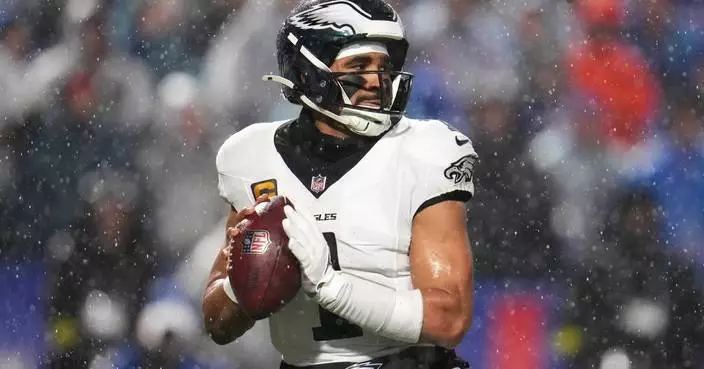
Eagles' risky move: Set to rest key starters against Washington in bid for No. 2 seed
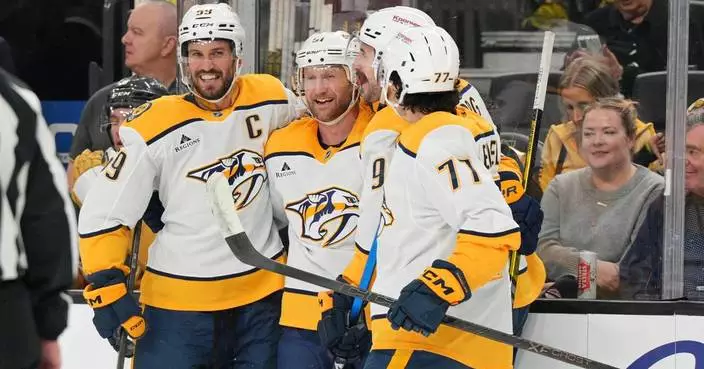
Steven Stamkos scores goal No. 600, Predators win New Year's Eve matinee in Vegas 4-2
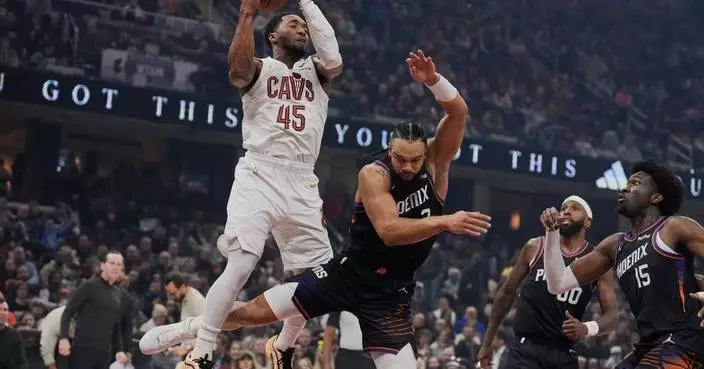
Donovan Mitchell scores 34 points to propel Cavaliers to 129-113 victory over Suns
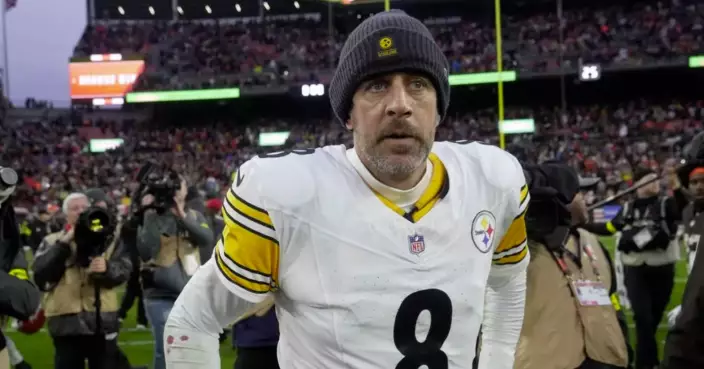
Steelers QB Aaron Rodgers believes he'll have options if he chooses to play again in 2026
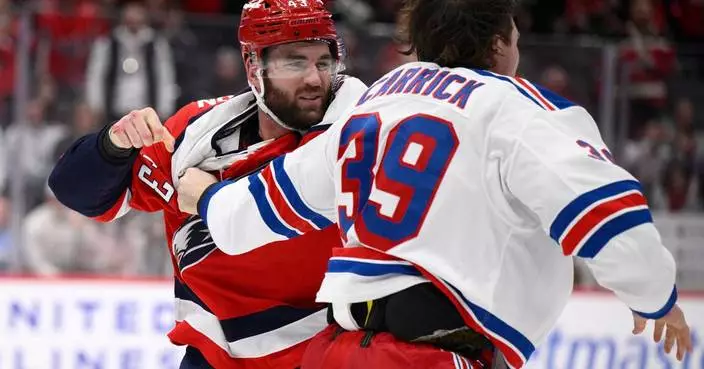
Tom Wilson has Gordie Howe hat trick in Capitals' 6-3 win against Rangers


